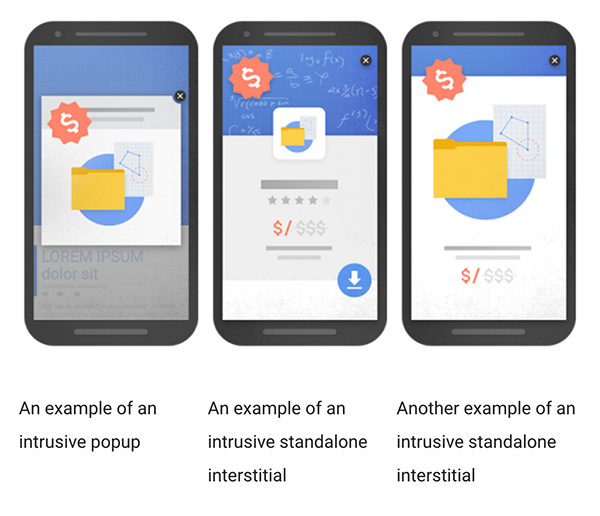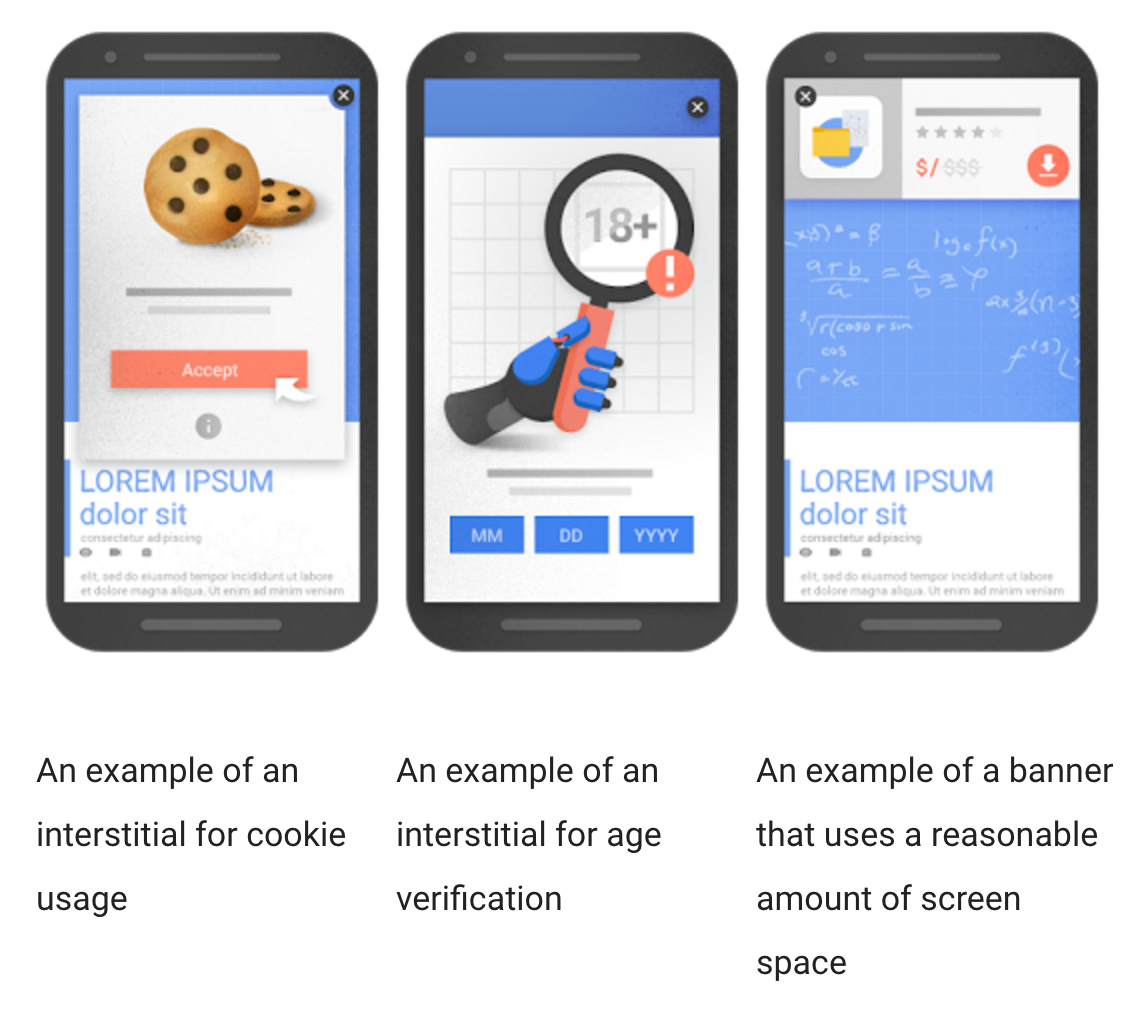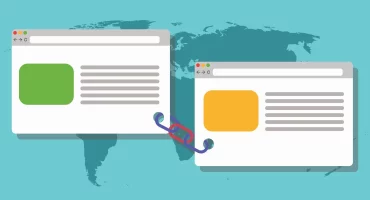Interstitials: How To Avoid Google Penalties For Using Pop-Ups

As I was playing around with SpyFu and it’s in-depth SEO and keyword information, I happen to scroll over a “Q” on the timeline and saw that SpyFu put a marker on the SEO overview for referencing:
Jan 2017 Intrusive Interstitial Penalty – Penalizes websites with aggressive interstitials.
Google gave a warning back in August 2016 that it would be cracking down on intrusive interstitial ads starting in January 2017.
According to the Google Webmaster Central Blog, “to improve the mobile search experience, after January 10, 2017, pages where content is not easily accessible to a user on the transition from the mobile search results may not rank as highly.”
This basically means that sites with mobile popups (or called interstitials per Google), can and will be penalized in the upcoming future.
Penalties from Google do not bode well for a website’s ranking. And Google has been placing more emphasis on mobile friendly sites. They want to crack down on the intrusive ads and allow sites who cater towards the mobile user’s experience to rank higher than ones who are disruptive to the user navigation.
What Interstitial Ads Will Be Affected?
Google did explain which types of interstitial that are going to be problematic for websites which included:
- Showing a popup that covers the main content, either immediately after the user navigates to a page from the search results, or while they are looking through the page.
- Displaying a standalone interstitial that the user has to dismiss before accessing the main content.
- Using a layout where the above-the-fold portion of the page appears similar to a standalone interstitial, but the original content has been in-lined underneath the fold.
Example of an intrusive interstitial or popup

Example of interstitial ads that would not be affected by Google’s new signals:
- Interstitial ads that appear to be in response to a legal obligation, such as for cookie usage or for age verification.
- Login dialog on sites where content is not publicly indexable. For example, this would include private content such as email or unindexable content that is behind a paywall.
- Banners that use a reasonable amount of screen space and are easily dismissible. For example, the app install banners provided by Safari and Chrome are examples of banners that use a reasonable amount of screen space.

Read Articles About Small Business Marketing
 Read more +12 December 2024 in Blog, Link Building, Page rank, Website
Read more +12 December 2024 in Blog, Link Building, Page rank, WebsiteSocial Sales Best Practices for Social Media Selling
 Read more +18 December 2023 in Blog, Content, Google Analytics, Online Tools, Page rank, Pagerank, SEO, Website
Read more +18 December 2023 in Blog, Content, Google Analytics, Online Tools, Page rank, Pagerank, SEO, WebsiteHow To Index a Website Page: Google Indexing – Crawl vs Index vs Rank
 Read more +24 November 2023 in Blog, Link Building, Page rank, Website
Read more +24 November 2023 in Blog, Link Building, Page rank, Website


